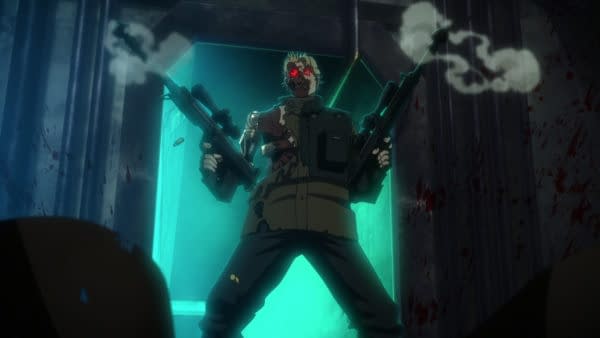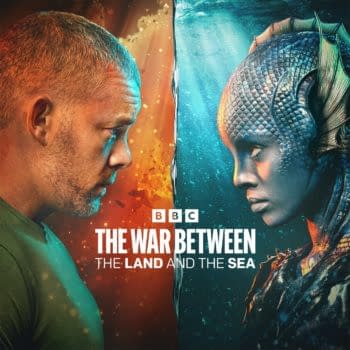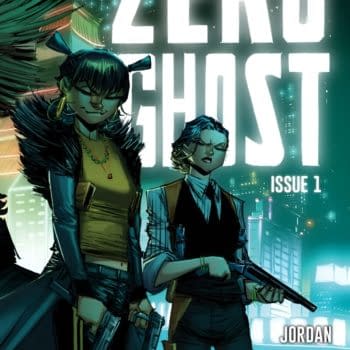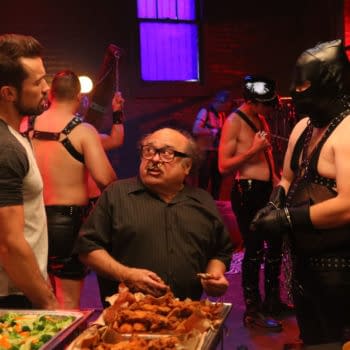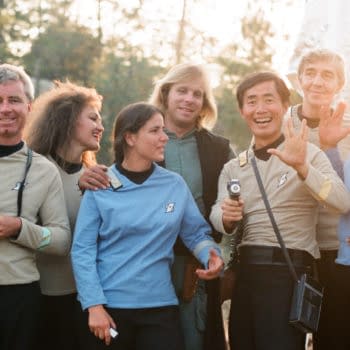Posted in: Netflix, Review, TV | Tagged: anime, james cameron, netflix, streaming, terminator, terminator zero
Terminator Zero Surprises, Injects New Life Into Franchise (REVIEW)
Terminator Zero starts out as expected - before blasting off in several surprising directions that breathe new life into the franchise.
Who would have thought that Terminator Zero, a new anime series with a completely new cast of characters, would breathe new life into the Terminator franchise? This is the most pleasant surprise for anyone with a fondness for the movie but has been disappointed by the last few movies not directed by original co-creator James Cameron.
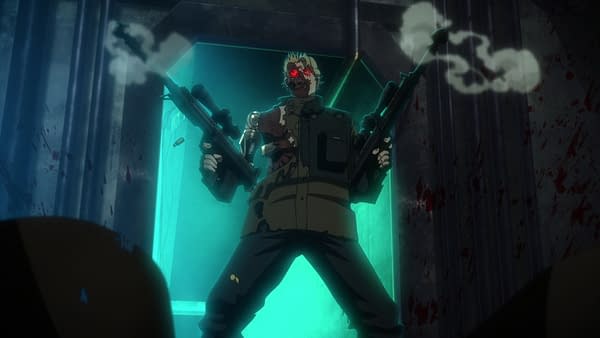
Terminator Zero – The Plot Variations
Terminator Zero starts with all the familiar tropes of the franchise: a soldier from the future is sent back to the past to prevent the apocalypse that ended the world, including stopping the Terminator robot sent back to ensure Skynet's victory. The variation in the plot is that this time, it's not about Sarah or John Connor but a different family, and the setting is Tokyo instead of the US. Eiko (Sonoya Mizuno) has been sent back to 1997, days before Judgment Day, to stop Skynet from launching the nukes that will end the world.
Malcolm Lee (André Holland) is a widowed father completely preoccupied with completing his new AI Kokoro (Rosario Dawson) that he has designed to rival, even combat Skynet, and he neglects his increasingly resentful children Kenta (Armani Jackson), Reika (Gideon Adlon) and Hiro (Carter Rockwood), leaving them under the care of increasingly put-upon housekeeper and nanny Misaki (Sumalee Montano) who has troubles of her own.
Meanwhile, a Terminator (Timothy Olyphant, whose lines take up less than five minutes in all eight episodes) has come in pursuit of the Lees, particularly Malcolm, to prevent the launch of Kokoro, which Malcolm hopes to use to prevent Judgment Day. The series takes a long time, the first half, to set up the story as Netflix series often do, but then takes off in several new and unexpected directions new to the franchise. It could also have been a tighter two-hour movie.
A Marriage of "Terminator" and Anime Tropes
Terminator Zero has all the hallmarks of an anime treatment of Terminator stories. Creator and showrunner Mattson Tomlin collaborated with animation studio PRODUCTION I.G., known for the Ghost in the Shell: Standalone Complex series, to create a Japanese perspective on Terminator stories. The story displays Japan's sentimental relationship with robots and the recurring theme throughout Japanese pop Science Fiction of whether humanity is worth saving. Japanese storytelling tropes merge with Terminator tropes like the sequence where a Terminator attacks a police station with a heroic cop who would usually be the hero of a Japanese story.
The series does epic apocalyptic Science Fiction anime often does more easily than live action could, since the latter would take $150 million to make. Tomlin's American approach to screenwriting prevents the anime series from getting too bogged down with convoluted lore, though there are still long stretches of Malcolm debating with Kokoro the ethics of free will in AI and whether humanity is worth saving. The only downside to all this is both Tomlin and the studio's overly earnest devotion to the seriousness of the story that they forget to put in any jokes. James Cameron always knew to have a few moments of humour, even grim humour, to offset the dark fatalism of the story.
Breathing New Life into the Franchise
At the core of Terminator Zero is a new take on time travel that validates every Terminator story past, present, and future. It posits that every instance of time travel creates a new timeline, resulting in a Terminator Multiverse. The Prophet, whose identity is a mystery, tells Eiko that Skynet, being a literal-minded machine mind, thinks it can keep itself alive and dominant by sending a Terminator back in time to kill one future saviour of humanity before Judgment Day, and it will fail every time, because killing one saviour, whether it's John Connor or someone else, will just create divergent timelines where other saviors will emerge, and Skynet is doomed to keep sending endless Terminators back in time after them, which will only create even more alternate timelines and new saviours.
In this sense, Terminator Zero establishes the Lee Family timeline where Malcolm and his family are the most entangled group of saviours who might each create a different future timeline and outcome. That means every Terminator movie and The Sarah Connor Chronicles are all equally valid, each with its own canon and continuity. Terminator Zero introduces a new saga of the Lee Family, which might carry on in a sequel series, but it doesn't need to since the season ends with endless possibilities as every Terminator story does.
This means that anyone can create a new Terminator story with completely new characters and open up the franchise to new and endless life instead of a closed loop. The franchise isn't tied to continuity at all since each story is a new continuity that the writers can just create with the toolbox of the common tropes. The Terminator has opened up the gate to its own endless supply of fan fiction, all of which is canon and official. Didn't like this or that movie in the franchise? Don't worry; more will come along that might be to your liking. It's like missing a bus but knowing more will be along.
If you're a Terminator fan, you're in heaven. If you hate the franchise, welcome to Hell.
Terminator Zero is streaming on Netflix.
